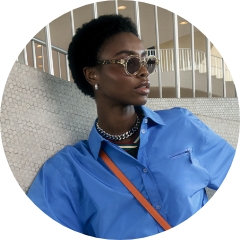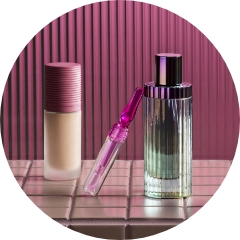-

Cotton
The Cotton Co-op was the first to be certified as Fairtrade in East Africa. We use Ugandan cotton to make our Red Nose Day t-shirts, supporting Comic Relief.
-

Craft
Our beautiful handmade baskets are made using traditional techniques. The income from regular sales of crafts helps families afford school meals and supplies for their children.
-

Coffee
We work with over 1000 coffee farmers in the Rwenzori mountains. They are members of two Fairtrade certified Co-ops, earning up to 20% more for their coffee as a Fairtrade Premium.
Spotlight on Rwenzori’s craftswomen
For over 10 years, the Sustainable Trade Programme has empowered 2000+ women from rural communities in Rwenzori, Uganda to increase their incomes, keep their children in school and adopt leadership roles. Read on to hear their stories and discover how their lives have improved.















